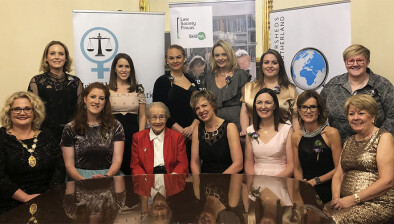Women lawyers challenge plans to seal mother and baby homes records

Government plans to seal records from the commission of investigation into mother and baby homes for 30 years are not “necessary and proportionate”, the Irish Women Lawyers Association (IWLA) has said.
The government recently set out its legislative plans for the “safeguarding” of the commission’s records following its conclusion in the coming weeks.
It confirmed that, under section 41 of the Commissions of Investigation Act 2004, the records will be safeguarded by the Minister for Children and Youth Affairs for 30 years before being transferred to the National Archives.
In a statement yesterday, the IWLA committee said it was “deeply concerned by recent government statements that the archive of the commission, once deposited with the minister, will be sealed entirely for 30 years”.
It continued: “Many of those affected by the commission’s work and the archive it has gathered are victims of serious and systematic human rights violations. Their right to personal data access must be vindicated as a first step towards redress and non-recurrence.
“The EU General Data Protection Regulation is supreme over conflicting Irish law and allows for the restriction of the fundamental right of personal data access only to the extent necessary and proportionate in a democratic society and only in a way that respects the essence of the right.
“Blanket sealing of the commission of investigation’s archive upon the minister’s receipt of it appears to us to fail this test. The archive will contain transcripts of personal testimony and personal and family records. We do not see any justification tor why this information should continue to be kept from those to whom it belong.”
The committee concluded: “We call on the government to amend the bill currently progressing through the Houses of the Oireachtas to confirm, for the avoidance of doubt that the Minister facilitate subject access request for personal data in the commission’s archive once he receives it.”







